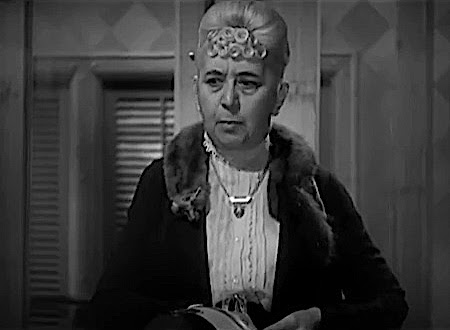From its earliest days, Hollywood has relied on Domineering Old Women. Many, many plots require them. Especially if they can also be kindly when called on. Often, these women are forgotten in later years, unless there’s something distinctive about them. Eleanor Audley has the Disney money behind her, after all, and not a lot of women had that going for them. Louise Hale Closser was one of those early cinema people born in the nineteenth century, and in the era of early talkies, that definitely made her old enough to be a Domineering Old Woman. The rest of it was skill.
Closser was old enough that she got her start in acting before it was possible to get a start in film; her earliest credit onstage is from 1894. She didn’t make her way to Hollywood until the post-Jazz Singer era, where her voice would be an asset. She worked with many of the greats, from Anna May Wong and Marlene Dietrich to the Marx Brothers. She was never the main character, often appearing in the matriarch role, though she was occasionally a spinster instead, in the days where you’d still use the term “spinster.”
Through it all, she continued to write. She isn’t much read today, but at the time, she published extensively. She wrote for Harpers, even serving as a World War I correspondent. With her husband, Walter Hale, she published many travel stories—she wrote them and he illustrated them. She wrote plays that were performed on Broadway. And she was an editor for The Smart Set magazine. Unfortunately, she isn’t well enough known for any of her works to have adaptations or Wikipedia pages, at least so far as I can tell.
In addition to her writing, she spent World War I as a founder of Stage Women’s War Relief. This is the organization that would later become the American Theatre Wing, best known these days for being the creator and sponsor of the Tonys. To be fair, the American Theatre Wing was a revival of the original, but Hale was one of the original creators either way. It seems likely that her work with it also inspired Bette Davis to create the Hollywood Canteen during World War II. Hale’s humanitarian work is also forgotten and also worth noting.
No, no one much today remembers Hale. She’s certainly a lesser-known figure in Shanghai Express, and she isn’t even credited in Duck Soup, and those are her two best-known roles. However, she is a notable figure in the history of American pop culture. The sort of person we talk about here because no one much talks about them anywhere else. The sort of person I saw in something and thought, “Yeah, I should get around to them.” And so I have.
Reward me for ever having heard of her by supporting my Patreon or Ko-fi!

